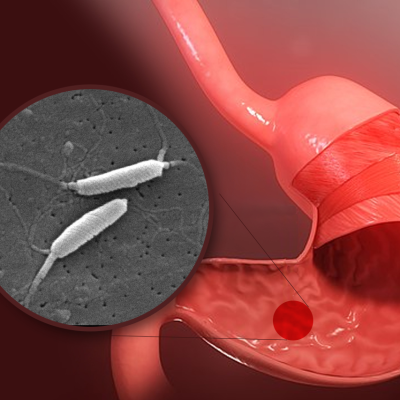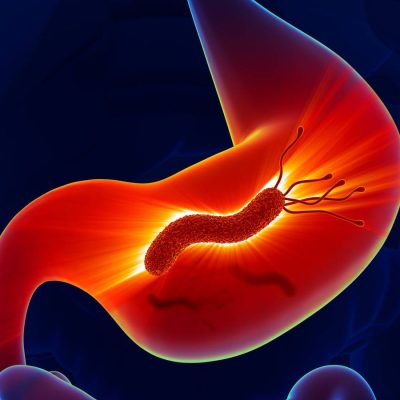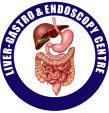Helicobacter pylori gastritis
Helicobacter Pylori Gastritis
Helicobacter pylori (H. pylori) infection occurs when H. pylori bacteria infect your stomach. This usually happens during childhood. A common cause of stomach ulcers (peptic ulcers), H. pylori infection may be present in more than half the people in the world.
Most people don’t realize they have H. pylori infection because they never get sick from it. If you develop signs and symptoms of a peptic ulcer, your health care provider will probably test you for H. pylori infection. A peptic ulcer is a sore on the lining of the stomach (gastric ulcer) or the first part of the small intestine (duodenal ulcer).
H. pylori infection is treated with antibiotics.

Symptoms
Most people with H. pylori infection will never have any signs or symptoms. It’s not clear why many people don’t have symptoms. But some people may be born with more resistance to the harmful effects of H. pylori.
When signs or symptoms do occur with H. pylori infection, they are typically related to gastritis or a peptic ulcer and may include:
- An ache or burning pain in your stomach (abdomen)
- Stomach pain that may be worse when your stomach is empty
- Nausea
- Loss of appetite
- Frequent burping
- Bloating
- Unintentional weight loss
When to see a doctor
Make an appointment with your health care provider if you notice any signs and symptoms that may be gastritis or a peptic ulcer. Seek immediate medical help if you have:
- Severe or ongoing stomach (abdominal) pain that may awaken you from sleep
- Bloody or black tarry stools
- Bloody or black vomit or vomit that looks like coffee grounds
Causes
H. pylori infection occurs when H. pylori bacteria infect your stomach H. pylori bacteria are usually passed from person to person through direct contact with saliva, vomit or stool. H. pylori may also be spread through contaminated food or water. The exact way H. pylori bacteria causes gastritis or a peptic ulcer in some people is still unknown.
Risk factors
People often get H. pylori infection during childhood. Risk factors for H. pylori infection are related to living conditions in childhood, such as:
- Living in crowded conditions. Living in a home with many other people can increase your risk of H. pylori infection.
- Living without a reliable supply of clean water. Having a reliable supply of clean, running water helps reduce the risk of H. pylori.
- Living in a developing country. People living in developing countries have a higher risk of H. pylori infection. This may be because crowded and unsanitary living conditions may be more common in developing countries.
- Living with someone who has an H. pylori infection. You’re more likely to have H. pylori infection if you live with someone who has H. pylori infection.

Complications
Complications associated with H. pylori infection include:
- Ulcers. H. pylori can damage the protective lining of the stomach and small intestine. This can allow stomach acid to create an open sore (ulcer). About 10% of people with H. pylori will develop an ulcer.
- Inflammation of the stomach lining. H. pylori infection can affect the stomach, causing irritation and swelling (gastritis).
- Stomach cancer.H. pylori infection is a strong risk factor for certain types of stomach cancer.
Prevention
In areas of the world where H. pylori infection and its complications are common, health care providers sometimes test healthy people for H. pylori. Whether there is a benefit to testing for H. pylori infection when you have no signs or symptoms of infection is controversial among experts.
If you’re concerned about H. pylori infection or you think you may have a high risk of stomach cancer, talk to your health care provider. Together you can decide whether you may benefit from H. pylori testing.
